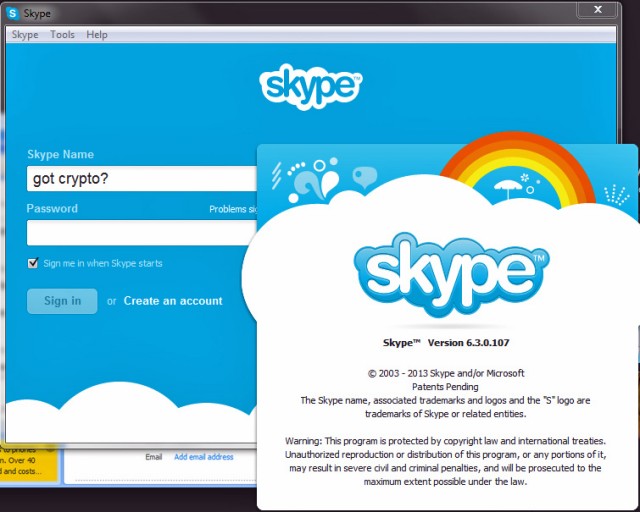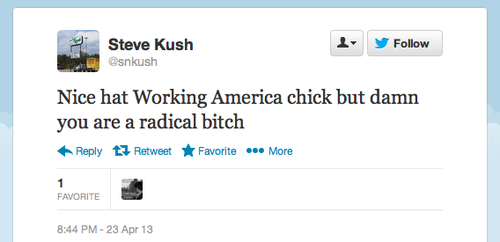Basically, the paper tries to paint a rosy picture, rewriting history left and right -- where the labels were dragged kicking and screaming very, very, very slowly into the future by various tech services, often having to fight expensive and damaging legal battles. The RIAA describes this as a "success" story, one "of vigorous licensing of new models by large and small record labels, large investments in music services and related technology, and a vibrant digital market that dwarfs the growth in other media industries."
This is kind of hilarious if you actually lived through any of this. Every new service got threatened or sued. The "authorized" services from the RIAA were purposely designed to be awful, expensive and fragmented. Yes, the music industry has moved forward, by inches, over the past 15 years, but never willingly and never with the kind of speed and embracing of innovation that was necessary. Marks also, somewhat ridiculously, pretends that Carrier ignores the content side of the equation. He did not. He repeatedly made it clear from the various interviews that everyone understood the importance of content, which is why they all desperately wanted the recording industry to move forward with them, which it resisted at every turn.
Professor Carrier also mischaracterizes the relationship between technology and copyright. Professor Carrier inappropriately pits copyright against innovation as though the two are boxers sparring for control rather than partners that work collaboratively and interdependently. The desire of consumers to listen to music has been a driving force for technology and recording companies to build and invest in new platforms and configurations, from vinyl record players to cassette players to CD players to iPods.The only mischaracterization here is from Marks. Carrier (and the people he speaks to) are pretty clear that the innovators wanted to work with content creators. It's just that the RIAA and its labels did everything they could to make that impossible. Yes, eventually walls were broken down, but way later than was reasonable. The industry refused to license digital music at all for years. It put restrictive DRM on it that made it less valuable. It sued left and right and scared innovators and investors entirely out of the market. It had no interest in actually working with innovators. All it wanted was massive upfront payments.
In the end, though, the crux of the RIAA's argument entirely misses the point of Carrier's piece. It basically says "look, there are lots of services today, what are you complaining about?" But the point was never that killing Napster stopped innovation, but rather that it hindered the pace and nature of that innovation. And the RIAA doesn't address it at all. There's a difference between the direction of change and the rate of change, and the key point is the rate of change, but all the RIAA wants to discuss is the direction, which is meaningless. Innovation can't be denied forever, so of course the direction will move forward. What Carrier's piece discussed, quite clearly, was the pace -- and the RIAA wants to avoid that, and pretend that everything that happened between 15 years ago and now didn't happen to get here. If we were at the point we're at today in 2003, they might have a point. The fact that it's taken us this long and we're still just reinventing radio... well, we've got a long way to go and should have been much further along.
The final response to Carrier's paper comes from law professor Randy Picker, who generally is a pretty strong supporter of copyright. His paper is called Copyright and Innovation: Deja Vu All Over Again, which basically argues that, yes, tech and innovation are in conflict, but because Carrier's paper doesn't suggest any reasonable solutions, it adds little of value.
The real question is not whether copyright matters for innovation; the entire history of copyright and distribution technology suggests that it does. Instead, we need to focus on a more nuanced way in which particular copyright settings can matter for innovation. “The Untold Story” does very little of that. So the article is critical of the efforts of music industry incumbents to protect their positions through litigation and also critical of possible reforms to copyright suggested by academics (including by me). But the article does not really say much about how one would write a copyright statute with distribution innovation in mind.Notice some built-in assumptions, which may not actually be true. Either way, he looks specifically at three areas of copyright law that are often criticized: duration, secondary liability and statutory licenses. He points out that duration is mostly meaningless, since so much infringement is recent material. On the other two points, he admits that they create uncertainty for businesses, but then suggests that existing rules on both have been set to favor innovation:
The critical question here is how we should calibrate the tradeoffs between copyright enforcement and open-ended innovation. Both Sony’s test and the DMCA safe harbors tilt in favor of innovation and sacrifice the enforcement of copyright. Defenders of those regimes often focus on precisely the way in which the safe harbors enable innovation. The classic vision of Silicon Valley innovation is two guys in a garage, not two guys with their lawyer. Critics of those regimes, and “The Untold Story” points to this work, want more tailored rules to better balance protection of copyrights and innovation, but the discussion is precisely about that tradeoff and the relationship between innovation and copyright has not been lost on anybody participating in that discussion.Of course, it's not clear that it's actually a tradeoff at all. This assumes that "greater enforcement" actually leads to some noticeable benefit -- and we've seen little evidence to support that (at least in any long term manner). On the other hand what we have seen -- which Picker totally ignores -- is that when innovation occurs it tends to massively expand the markets for the creators themselves. The point I've made repeatedly is that a mere four years after Jack Valenti said that the VCR would be the "Boston strangler" to the movie industry, the home video market was making more money than the box office.
These aren't "tradeoffs." These are maxima reductions. They're removing efficiency from the system to protect an inefficient, legacy way of doing business. That doesn't help expand the market. True innovation creates a bigger pie. It may be challenging at first, because people haven't totally figured it out, but it's not about one party losing and one winning. This isn't a zero sum game, like many seem to think. The "tradeoffs" are between a smaller pie and a bigger one, and Picker seems to be upset if the law favors a bigger pie. I can't see how that makes any sense from an economic standpoint.
Not surprisingly, I don't find either of these responses particularly compelling or convincing. They're arguing things based on claims without a basis, and ignoring reality. What Carrier's paper did so well was bring actual reality into the picture: the stories of entrepreneurs and investors whose innovation was chilled or stopped. The RIAA can pretend it didn't happen and Picker can pretend that it doesn't matter, but basic history and economics say that both are not true.
Permalink | Comments | Email This Story









 To reduce unauthorized downloading, content producers should make their products widely available and take away the incentive for people to pirate.
To reduce unauthorized downloading, content producers should make their products widely available and take away the incentive for people to pirate.





















 Since the SOPA and PIPA uproar last year the Internet has become increasingly aware of the U.S. Government’s attempts at meddling with the web.
Since the SOPA and PIPA uproar last year the Internet has become increasingly aware of the U.S. Government’s attempts at meddling with the web. 

